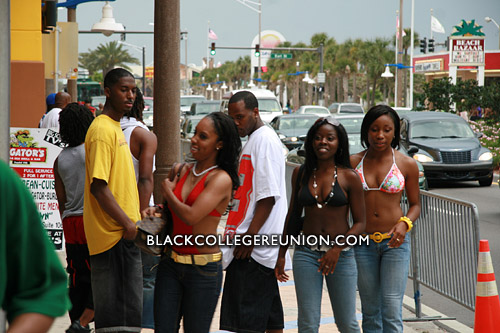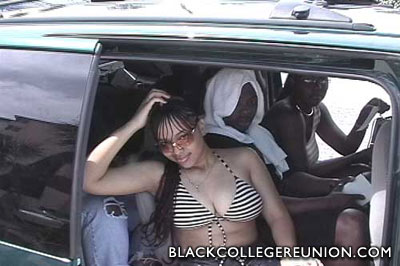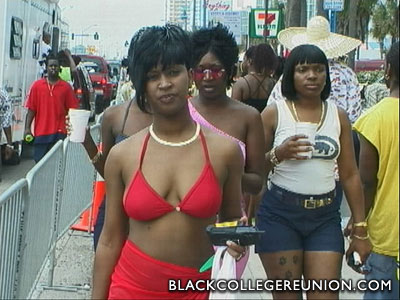Black College Reunion 2010 Dates
The tentative dates for Black College Reunion (BCR) in Daytona Beach, FL will be March 11-14, 2010. These dates are considerably earlier than years past, so I would wait a while longer before booking hotels/reservations. I personally would like to see the dates moved to the second week in April. We will post more information as it becomes available.
Black College Reunion 2009 Dates

The dates for Black College Reunion 2009 a/k/a Black Spring Break in Daytona Beach, FL has been announced.
March 20 – 22, 2009
Its a little earlier this time around, so make your reservations now. As information comes in I will update the site accordingly. Lets hope gas prices continue to go down so more people can make it down to BCR 2009.
Traveling to BCR you will have the opportunity to meet college students from around the country. ( Primarily from southern states though ) One year I met this nice girl from Hawaii, she was more than happy to let me know black people live there. I apologize for my ignorance, but I was young. LOL
Black College Reunion: History

Black College Reunion began at Bethune-Cookman, where students in 1984 organized a spring party to celebrate their fall football rivalry with students at Florida A&M University. The event eventually grew to more than 150,000 students and was marred by controversy, including violence, discrimination and clashes with police.
In recent years, however, crowds have dropped, in part because of the growing popularity of other spring-break gathering places but also because of efforts by the city to control the drinking, loud music and massive traffic jams that used to characterize the event.

At its peak back In 2001, The Black College Reunion generated $145 million in economic activity for the Daytona Beach, Fla., region, according to an economist’s studies.
The three-day event, which brought as many as 100,000 spring breakers from historically Black colleges across the nation, also supported the equivalent of 3,500 year-round jobs, economist Mark Soskin said.




